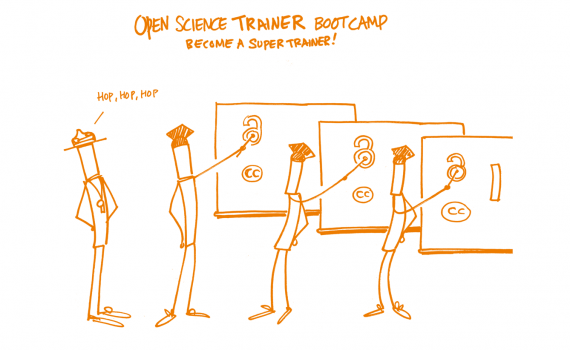
Open science training is taking off in our partner countries. We conducted a survey of our partner national library consortia, and are delighted to report that last year over 10,000 researchers, students, research administrators and librarians were trained in open access and open science by the consortia or their member libraries. We are extremely grateful to the library consortia in 23 countries in Africa, Asia and Europe (Armenia, Azerbaijan, China, Cote d'Ivoire, Estonia, Ethiopia, Fiji, Georgia, Kenya, Kosovo, Kyrgyzstan, Lesotho, Lithuania, Malawi, Moldova, Nepal, North Macedonia, Palestine, Serbia, Slovenia, Tanzania, Zambia and Zimbabwe) for their active engagement in organizing and providing open science training.
We have also been building a Community of Practice (CoP) for open science trainers in our partner countries. The CoP is now over a year old, and comprises over 70 trainers (mostly librarians) from 32 countries who meet online on a monthly basis. In addition to sharing training experiences and supporting each other, the community discusses training needs and members help each other and EIFL to create training resources to meet needs and fill gaps. The EIFL guide and checklist for researchers and librarians: Choosing a journal for your research, Open Science for Health Sciences Training Programme Outline for librarians and open science trainers and Artificial Intelligence and Open Science Training Programme Outline for librarians and open science trainers were all requested by the community, and community members contributed content, discussed drafts and reviewed the final versions. The three resources were released last year.
This year we are finalizing resources and guides on open research software, also at the request of the community. These resources will help trainers to deliver training on different kinds of research software used by researchers.
TRAINING TOPICS, STRATEGIES AND TOOLS
Research assessment, reproducibility, open research data and Data Management Plans, Creative Commons licences and citizen science were all among the training topics discussed at the meet-ups.
At our July meet-up Milica Ševkušić, of the EIFL Open Access Programme led the discussion on strategies to boost the visibility of researchers, institutions, research outputs and research activities as a training topic. See the recording and slides here.
Marjan Monshi from Kaunas University of Technology (Lithuania) - an active Community of Practice member - shared her experiences on training early career researchers on open science and research data management. Her input and ideas were highly appreciated by the meet-up participants. Now Marjan is setting up an open science journal club for researchers to meet regularly to discuss papers, emphasizing open science practices.
Ljiljana Radisavljević from the Institute for Vegetable Crops and Obrad Vučkovac, from the Vinca Institute of Nuclear Science (Serbia), shared how they plan their training sessions, including efforts to understand their audience (their goals, expectations and what they want to improve); how they use free online tools create and adapt training materials, for example, using Slides Carnival, embedding QR codes for the audience to follow links and finding visuals in Unsplash and Pexels (more free tools are available here) and deal with challenges such as last-minute shifts in agenda, and how they keep participants engaged, for example, by using Particify. They also discussed how international training programmes such as the EIFL Open Science Train-the-Trainer Bootcamp and the OpenAIRE Open Science Train-the-Trainer Bootcamp helped them to grow as confident and skilled trainers.
“We always prefer to work as a team, it’s more fun. If you are the only librarian responsible for training in your institution, consider joint training sessions with other institutions, record your training sessions and share them afterwards in your networks,” say Ljiljana and Obrad.
In addition, they shared how they switched from one-off presentations to more structured training courses, giving homework for their trainees to complete, and how open science training has resulted in community building around research data management, repositories and broader open science topics.
In Serbia, there is also an informal community of trainers (70-80 people), which provides a safe environment for younger or less experienced trainers to practice their training skills and give presentations to more experienced trainers and receive feedback and suggestions for improvement.
Sign up for the next EIFL open science trainers meet-up on 11 September.
Are you training on open access and open science in an EIFL partner country and want to join the EIFL Community of Practice for open science trainers? Get in touch with iryna.kuchma@eifl.net.
SHARE / PRINT









